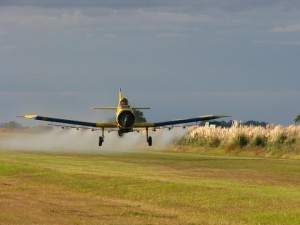Prenatal exposure to pesticide may increase risk of autism
 Photo Credit: Santiago Nicolau
Photo Credit: Santiago Nicolau
A new study published in Evironmental Health Perspectives found that maternal exposure to pesticides can increase the risk of autism in children. Researchers from The University of California, Davis MIND Institute looked at associations between autism diagnoses and pesticides including organophosphates, pyrethroids and carbamates. They found that the risk of having a child with autism increased by two-thirds if mothers lived near farms or fields where synthetic pesticides were applied. This association was higher when pregnant women were exposed during their second or third trimesters. “In that early developmental gestational period, the brain is developing synapses, the spaces between neurons, where electrical impulses are turned into neurotransmitting chemicals that leap from one neuron to another to pass messages along. The formation of these junctions is really important and may well be where these pesticides are operating and affecting neurotransmission,” said lead author Dr. Irva Hertz-Picciotto in a recent press release. Many synthetic insecticides are neurotoxic, and prenatal exposure can have a disproportionate effect on babies because their developing nervous systems are more vulnerable to environmental pollutants.



